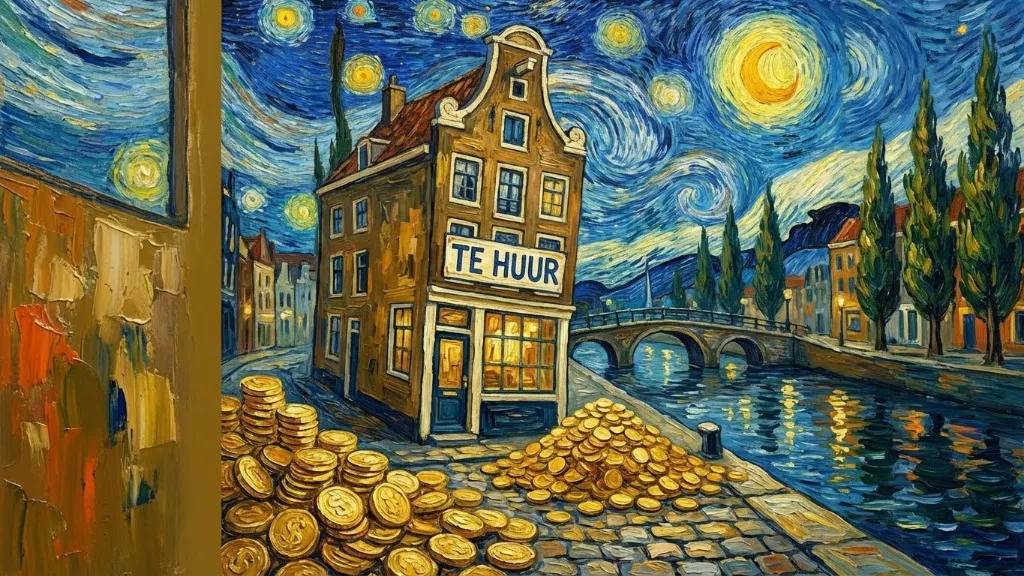Security Deposit Worries in the Netherlands?

Introduction: A Common Concern for Renters
You’ve moved out, cleaned the apartment, returned the keys — and now you’re waiting. Days pass, sometimes weeks. Still no sign of your security deposit.
For many renters in the Netherlands, especially international students, expats, and first-time renters, getting the full deposit back can be unexpectedly difficult. Whether it’s delays, disputes, or deductions you didn’t expect, deposit issues are among the most common post-rental frustrations.
But there’s good news: the Netherlands has clear rental rules, and tenants have rights.
What Is a Security Deposit, and What Are the Rules?
A security deposit is a financial guarantee — usually equal to one or two months’ rent — paid to cover possible damage or unpaid rent. According to Dutch law:
- It must be returned within a reasonable timeframe, typically around 30 days after the lease ends.
- The landlord can only deduct reasonable costs, such as actual damage (not wear and tear) or unpaid rent.
If the deposit is not returned, or deductions are unclear, the burden of proof lies with the landlord — not the tenant.
Common Issues Tenants Face
Here are some typical problems renters encounter:
1. Unclear or Unjustified Deductions
You may receive less than expected, often without explanation — for things like repainting, cleaning, or “wear and tear” that should not be charged.
2. Delayed Repayment
Some landlords delay refunds without valid reasons, especially if tenants are no longer in the country and can’t follow up easily.
3. Poor Documentation at Move-In/Out
Without proper check-in/check-out reports or photos, it’s hard to prove the condition of the apartment.
4. Verbal Agreements
Without a written agreement or lease clause regarding the deposit, disputes become harder to resolve.
How to Protect Your Deposit: Smart Steps to Take
Here’s how to avoid problems — before they even start:
1. Always Get a Signed Contract
Make sure the lease clearly explains how much the deposit is and under what conditions it may be withheld.
2. Take Photos at Move-In
Document the condition of the property in detail — including appliances, walls, floors, and windows.
3. Do a Final Walk-Through
If possible, walk through the apartment with the landlord at the end of your lease and ask for written confirmation that it’s in good condition.
4. Clean Thoroughly
Leave the property as clean as when you moved in. Some tenants even hire a professional cleaner and keep the receipt.
5. Use Trusted Platforms Like Huisly
When you find your rental through a transparent platform like Huisly, you’re more likely to rent from reliable landlords who follow fair practices. Huisly gathers listings from top websites and offers better oversight than classifieds or social media posts.
What to Do If You Don’t Get Your Deposit Back
If the landlord doesn’t return your deposit, or you’re facing unfair deductions:
- Send a formal written request, outlining your concern and asking for a breakdown.
- If there’s no resolution within a reasonable time, you can take legal steps through a local tenant association or even small claims court.
- In many cases, just stating your intention to escalate the matter helps speed things up.
For students or expats unsure where to start, there are tenant support organizations in most Dutch cities that offer guidance (often free).
Conclusion: Stay Proactive, Stay Protected
Getting your deposit back shouldn’t be a guessing game. With the right documentation and preparation, you can avoid unnecessary stress and protect your money. And when you search for rentals using Huisly, you reduce the risk of shady practices from the very beginning.
Looking for peace of mind with your next rental? Use Huisly to find quality listings from reliable sources — all in one place. Start renting smarter today.
About Lena Rahimi
Marketing and research expert at Huisly. Lena combines data-driven insights with deep market knowledge to help home seekers navigate the Dutch real estate market.
Related Articles

Lack of Clarity in Rental Contracts in the Netherlands
Confused by rental contracts in the Netherlands? Learn how to understand Dutch rental agreements, what to look for, and how to avoid unpleasant surprises.
Read Article
Inschrijven in the Netherlands: How Municipal Registration Works for Renters (and Why Landlords Refuse)
Everything you need to know about municipal registration (inschrijven) in the Netherlands: why it's mandatory, why some landlords refuse it, and your legal rights.
Read Article
When Landlords Don’t Perform Maintenance
Is your landlord slow with repairs? Learn your rights as a tenant in the Netherlands and what you can do if maintenance is ignored — plus how platforms like Huisly help you avoid these issues.
Read ArticleGet the Huisly App!
Download our app for the best experience, instant notifications, and exclusive features for renters and buyers in the Netherlands.
Download the App